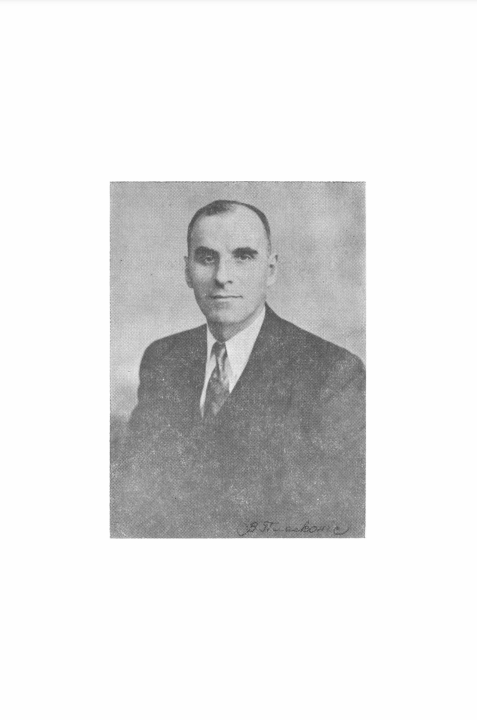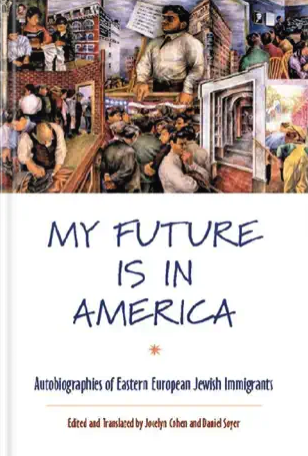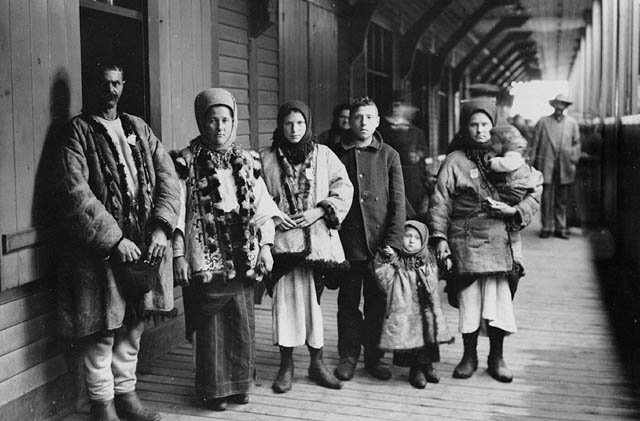Our Emigration
From under Lyutovyska, they write to us:
In our lands, people now do not talk about other things than the trip to “Hamerica”. From all villages around Lyutovyska, a great many people are leaving for the United States of North America for labour. Usually the poorest people leave having borrowed the money, either from some richer ones, or in the church, or elsewhere. When the rich man has a larger family, he would send one son out to the world to make money. Young lads leave, even 17-year-olds, and the older men, too. Sometimes, the debtors go because they hope to pay off their debts with their earnings. Even the Jews are migrating. Several dozens left from Lyutovyska, young Jewish women also left from the villages. Wherever our Christian people go they are following and live by because they fear lest our people miss them. In the beginning of this year, people in Ustrzyki hired a Jew as a guide to Hamburg but it had happened several times that the Jew was arrested in Przemysl, then again somewhere else, and the people were delayed. Those who went to America, threw away their outfits in Ustrzyki Dolne, bought some other clothes from the Jews to look more upper class and continued their journey that way. Now, they go directly to Oświęcim, to the agency house of Zofia Biesiadecka who sent her announcements and information to all the villages, There, they change the clothes and go on. At the border, the immigrants are sometimes detained when they have not served military service or exercises, or have not paid a military tax.
We have been experiencing the consequences of having so many people immigrating to America everywhere. From the communities located further in the west, people have been already leaving for work to America for over twenty years now. During this time, they have sent much money back home, which paid the debts, built better houses, and some villages bought the landlords’ lands into private property. However, much money was also wasted. Our peasant people found themselves in America in totally different conditions. There, their daily meals would be better than they used to have at Easter here; they would buy themselves better clothes; they would always have money at hand; and they did not have to struggle like they used to in their homeland, discriminated by every other ruffian. People longed for their native land, but upon their nostalgic return from America, they faced the old lifestyles they no longer wanted. They would not enjoy the taste of lean potatoes, oatmeal, or corn bread. They would try to have a better life with the money they earned, and when they ran out of money, they would go back to America as soon as possible. In many villages, almost all the young people left, leaving behind the young girls and old people. Because of this, there was no one to run the households, and the young girls did not have any grooms to marry. Because of this, the dowry increased and the fathers with adult girls would often search for grooms in the surrounding villages. Thus, immigration to America brought much money for our people but also inflicted much damage to community life.
It would be good if our people could be more cautious of the immigration, and tried to make it bring some benefits to our people’s cause. When leaving for America, our people find themselves in a richer and wealthier country, in a country of personal freedom and respect for the dignity of every citizen, whereas at home, they left behind poverty, illiteracy, arbitrariness, and exploitation. Our Constitution, although well-designed, exists only on paper. If our peasants, having looked well at everything in America, having understood everything, and therefore having returned to the homeland, if they could try and transfer those things at home, to share them, and thus, they would have contributed largely to the growth of their nation. Some people are happy to have earned the money and buy the land upon return. However, for Ruthenians, it does not do any good if land simply passes from one peasant to another. It would be very good if peasants earned money overseas, and bought parceled landlord lands. It would not hurt us if such people looked for earnings in trade, in entrepreneurial activity. We know how difficult this is for us and why, but goodwill can help overcome many hardships. As to those people who enjoyed American life and cannot downshift to come back and live here, they will do better when they stay in a new place and earn their daily bread there.





Mykhailo Zubrytskyi is a Greek Catholic priest and a public figure who analyzes the phenomenon of migration to the United States from the Carpathian village of Lyutovytska, in the Ukrainian newspaper Dilo. The author describes the migration strategies of peasants, the stages of the migration process, adaptation to a new place, and difficulties with returning. Although the text focuses on Ukrainian migration, the author mentions Jews who were also leaving for the United States, as well as Jews who acted as intermediaries in migration. At the same time, for the author, as for a public figure, the influence of migration on Galicia was important, which he saw as multidimensional. Migration meant the outflow of young able-bodied people from the region, but at the same time financial assistance for their families. However, he seems to find it the most important to have the possibility of adopting the political culture of the democratic region and the implementation of its principles in Galicia. This text illustrates that the phenomenon of migration was important not only for socialist environments, but also for Ukrainophiles.